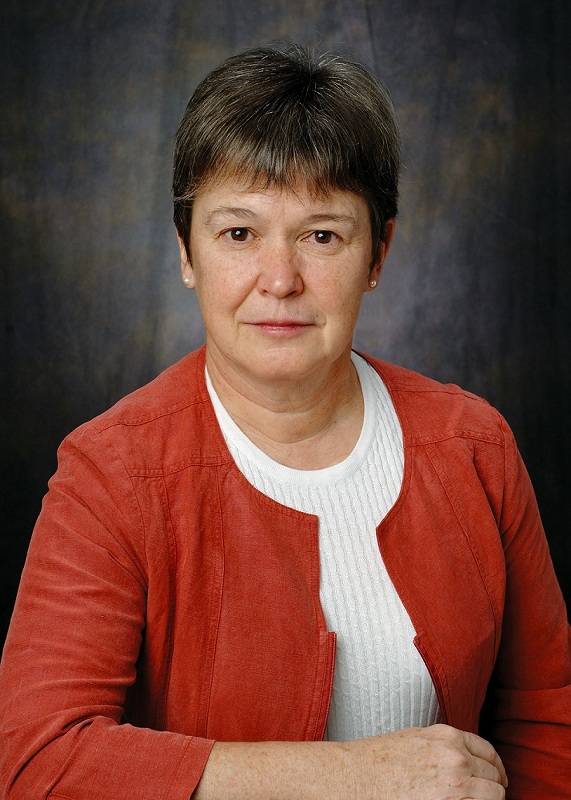In my view... Ruth Wilson, Canada
español
Introduction by Donald Li
For many family doctors around the world, delivery of comprehensive primary care is still an aspiration because health systems are not focussed on delivery of care outside hospital settings. For others, delivery of primary care is just one, albeit important, aspect of their role as family doctors. This month, Professor Ruth Wilson offers us an insight into the broader role of family doctors in a range of settings. This broader role can easily be forgotten, in the global discussions about achieving the goal of Universal Health Coverage.
Family Medicine—More than Primary Care
 Prof Ruth Wilson (Canada) writes:
Prof Ruth Wilson (Canada) writes:
Family doctors quite rightly claim a central key position in the provision of primary care. We are the only well-trained generalist physicians who fulfill this role. As Jan de Maeseneer pointed out in this column recently (1), there is work to be done in many countries to make this case. We are challenged to show our worth in health care settings where it is assumed that other providers such as community health workers are better placed to provide personal first contact care.
We know firsthand the value of good primary care. We see our patients benefit from the comprehensive care we offer. We see their satisfaction with the continuity of care we deliver. We watch them become more open to preventive measures and to management of their chronic conditions as we come to know each other. We are aware that they trust us enough to disclose their psychosocial concerns. And the evidence supports this kind of care—a recent systematic review shows that continuity of care decreases mortality.(2) Having a usual family doctor can prolong your life.
But can family doctors provide more than primary care? Of course we can. From Nepal to Australia, family doctors work in settings where secondary care is offered. In my own country of Canada, family doctors provide anesthesia, intrapartum obstetrics, and care in emergency rooms. (3)
This work in secondary care settings such as hospitals provides several advantages to patients, communities, and family physicians. If family physicians work in primary as well as secondary care settings, they are more likely to see the same patients both in an outpatient clinic setting, and also in emergency situations. This enhances continuity care and gives the patient the comfort of seeing a familiar face.
For communities, particularly in rural areas, a well-trained family physician generalist can be a very cost-effective health care provider. In these communities there is not enough volume of cases to justify or support full-time specialist consultants in obstetrics, for example. But multi-skilled family physicians can deliver babies as well as provide primary care.
For family physicians themselves the opportunity to work in a variety of settings in the same community enhances clinical skills. Seeing patients with more acute disease presentations reminds them that a condition diagnosed early in a primary care setting may save the patient from an outcome of a disease which, if treated earlier, could have caused less morbidity.
Each country’s health care system is organized differently, and the needs of the population differ, based on the wealth of the country, the patterns of morbidity and mortality, and the social determinants of health. The role of the family physician will thus likely differ country to country. Certainly, the major strength of family medicine is in the provision of quality primary health care. We need to continue to advocate for our being the best medical speciality to be part of the primary care team.
But let us not assume that family medicine and primary care are synonymous. In countries with a widely dispersed population, well trained generalist family physicians are an important lynchpin of the rural and district hospital systems. At the other end of the primary care spectrum, the approach to population health which family doctors can bring also suits us well for roles in public health. And of course, our communication skills, broad background in understanding the human condition, and adeptness at problem-solving fits us well for medical leadership roles too.
Family medicine has the power to change the lives of individuals and populations, not only through our central contributions as primary care providers, but also with our additional capabilities as skilled physicians throughout the health care system. Our educational programs and research endeavours need to consider the potential pluripotency of family physicians. Family medicine considers being responsive to the needs of a community as one of its principles. (4) As a global organization of family doctors let us, WONCA, continue to advocate for our central role in primary care provision but remember that family medicine as a discipline encompasses an even wider useful scope.
References:
1. Jan de Maeseneer Family Medicine, Primary Health Care and Universal Health Coverage: What is WONCA’s role?
In my view September 2019
2. Pereira Gray DJ, Sidaway-Lee K, White E, et al Continuity of care with doctors—a matter of life and death? A systematic review of continuity of care and mortality BMJ Open 2018;8:e021161. doi: 10.1136/bmjopen-2017-021161
3. College of Family Physicians of Canada. Family Medicine Professional Profile
www.cfpc.ca/fmprofile/
4. Rosser W. Sustaining the 4 principles of family medicine in Canada. Can Fam Physician. 2006;52(10):1191–1197.
About Ruth Wilson
Ruth Wilson is the past president of the North America region of WONCA. She is Professor Emerita in the Department of Family Medicine at Queen’s University, Kingston, Ontario, Canada. She currently practices family medicine in the Northwest Territories of Canada.